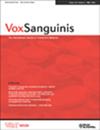通过 "波恩方案 "诱导血友病 A 抑制剂患者的免疫耐受:治疗时间和治疗结果的预测参数
IF 1.8
4区 医学
Q3 HEMATOLOGY
引用次数: 0
摘要
抑制剂的治疗是血友病治疗中最具挑战性的领域之一。本研究报告了根据 "波恩方案 "对 60 名血友病 A 抑制剂患者进行治疗的结果,并对治疗持续时间和结果的预测因素进行了评估。52名患者(86.7%)成功获得了免疫耐受,8名患者(13.3%)治疗失败。所有 52 名患者都获得了持久的免疫耐受,在长达 20 年的随访中没有抑制剂复发。ITT 的疗程受多种因素影响。在 ITT 疗程中中断治疗导致 ITT 持续时间大幅延长(中位数为 39.9 个月,连续治疗患者为 14.1 个月)。静脉中心管感染似乎经常与 ITT 延长同时发生,有时甚至与 ITT 失败同时发生。入组或 ITT 期间抑制剂滴度高也是 ITT 持续时间的负面预测因素。此外,内含子 22 倒置现象普遍的患者的 ITT 持续时间也有延长的趋势。根据我们的数据,在 ITT 期间应避免治疗中断和静脉中心管路感染。此外,我们的数据还表明,ITT 应在抑制剂滴度较低时开始,最好采用高 VIII 因子剂量方案。本文章由计算机程序翻译,如有差异,请以英文原文为准。
Induction of Immune Tolerance in Haemophilia A Inhibitor Patients by the ‘Bonn Protocol‘: Predictive Parameter for Therapy Duration and Outcome
The treatment of inhibitors is one of the most challenging fields in haemophilia care. The present study reports the results of 60 haemophilia A inhibitor patients treated according to the ‘Bonn Protocol’ and evaluates predictors for the duration and outcome of therapy. Successful immune tolerance could be achieved in 52 patients (86.7%) while the therapy failed in eight patients (13.3%). The immune tolerance achieved was longlasting in all 52 patients, with no inhibitor relapse in up to 20‐years follow‐up. The course of ITT was influenced by several factors. Interruptions of treatment during the ITT course led to a substantial prolongation of ITT duration (median 39.9 months vs 14.1 months in continuously treated patients). Infections of intravenous central lines appeared to be frequently coincided with ITT prolongation and sometimes even ITT failure. Further negative predictors towards the ITT duration were high inhibitor titres at enrolment or during ITT. There was also a tendency towards longer ITT duration in patients exhibiting the prevalent intron 22 inversion. As a consequence of our data treatment interruptions and infections of intravenous central lines should be avoided during the course of ITT. Furthermore our data suggest, that ITT should be started at low inhibitor titres preferably with a high factor VIII dosage protocol.
求助全文
通过发布文献求助,成功后即可免费获取论文全文。
去求助
来源期刊

Vox Sanguinis
医学-血液学
CiteScore
4.40
自引率
11.10%
发文量
156
审稿时长
6-12 weeks
期刊介绍:
Vox Sanguinis reports on important, novel developments in transfusion medicine. Original papers, reviews and international fora are published on all aspects of blood transfusion and tissue transplantation, comprising five main sections:
1) Transfusion - Transmitted Disease and its Prevention:
Identification and epidemiology of infectious agents transmissible by blood;
Bacterial contamination of blood components;
Donor recruitment and selection methods;
Pathogen inactivation.
2) Blood Component Collection and Production:
Blood collection methods and devices (including apheresis);
Plasma fractionation techniques and plasma derivatives;
Preparation of labile blood components;
Inventory management;
Hematopoietic progenitor cell collection and storage;
Collection and storage of tissues;
Quality management and good manufacturing practice;
Automation and information technology.
3) Transfusion Medicine and New Therapies:
Transfusion thresholds and audits;
Haemovigilance;
Clinical trials regarding appropriate haemotherapy;
Non-infectious adverse affects of transfusion;
Therapeutic apheresis;
Support of transplant patients;
Gene therapy and immunotherapy.
4) Immunohaematology and Immunogenetics:
Autoimmunity in haematology;
Alloimmunity of blood;
Pre-transfusion testing;
Immunodiagnostics;
Immunobiology;
Complement in immunohaematology;
Blood typing reagents;
Genetic markers of blood cells and serum proteins: polymorphisms and function;
Genetic markers and disease;
Parentage testing and forensic immunohaematology.
5) Cellular Therapy:
Cell-based therapies;
Stem cell sources;
Stem cell processing and storage;
Stem cell products;
Stem cell plasticity;
Regenerative medicine with cells;
Cellular immunotherapy;
Molecular therapy;
Gene therapy.
 求助内容:
求助内容: 应助结果提醒方式:
应助结果提醒方式:


